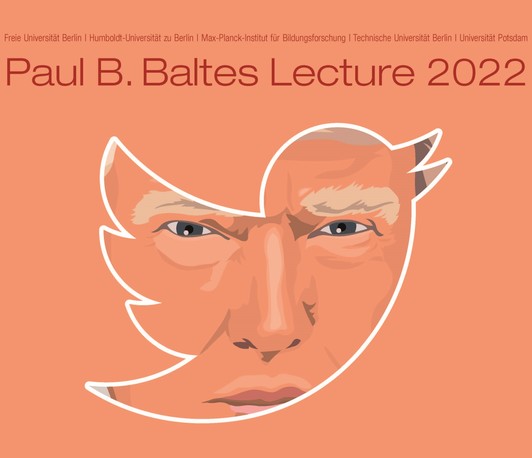Paul-B.-Baltes Lecture: Demagoguery, Technology, and Cognition: Addressing the Threats to Democracy
- Date: Oct 5, 2022
- Time: 06:00 PM - 08:00 PM (Local Time Germany)
- Speaker: Stephan Lewandowsky
- Professor, Chair in Cognitive Psychology, University of Bristol, UK Guest Professor, Research Focus Cognitive Sciences, Universität Potsdam
- Location: Berlin-Brandenburgische Akademie der Wissenschaften (BBAW) Leibniz-Saal Markgrafenstraße 38, 10117 Berlin

We would like to cordially invite you to the Paul B. Baltes Lecture 2022.
Stephan Lewandowsky, University of Bristol
Demagoguery, Technology, and Cognition:
Addressing the Threats to Democracy
October 05, 2022, 18:00h
Organisers: Prof. Dr. Birgit Elsner, Entwicklungspsychologie,
Strukturbereich Kognitionswissenschaften, Universität Potsdam
Jägerstraße 22-23, 10117 Berlin (Eingang Markgrafenstraße)
Abstract: Democracy is in retreat or under pressure worldwide. Even in countries with strong democracies, polarization is increasing, and the public sphere is awash in misinformation and conspiracy theories. Many commentators have blamed social media and the lack of platform governance for these unfortunate trends, whereas others have celebrated the Internet as a tool for liberation, with each opinion being buttressed by supporting evidence. One way to resolve this paradox is by identifying some of the pressure points that arise between the architecture of human cognition and the online information landscape, and by studying how these pressure points can be used by populist demagogues to undermine democracy. The lecture will survey some of those pressure points, focusing on the attention economy and the algorithms that curate our news feeds. Partly based on the current ERC advanced grant “Protecting the Democratic Information Space in Europe (PRODEMINFO)”, it will be shown how such pressure points allow politicians to replace evidence-based discourse with often emotive belief-speaking that is less sensitive to evidence and accountability. A spectrum of possible solutions will be discussed.The annual Paul B. Baltes Lecture was initiated to commemorate Paul B. Baltes’ achievements for psychological research and his contributions to psychology. The lecture series is hosted by the Free University of Berlin, the Humboldt University of Berlin, the Technical University of Berlin and the University of Potsdam in collaboration with the Max Planck Institute for Human Development, and is supported by the Margret M. and Paul B. Baltes Foundation.
We look forward to welcoming you at the lecture.
On behalf of the Paul B. Baltes lecture initiative group and with kind regards,
Ulman Lindenberger